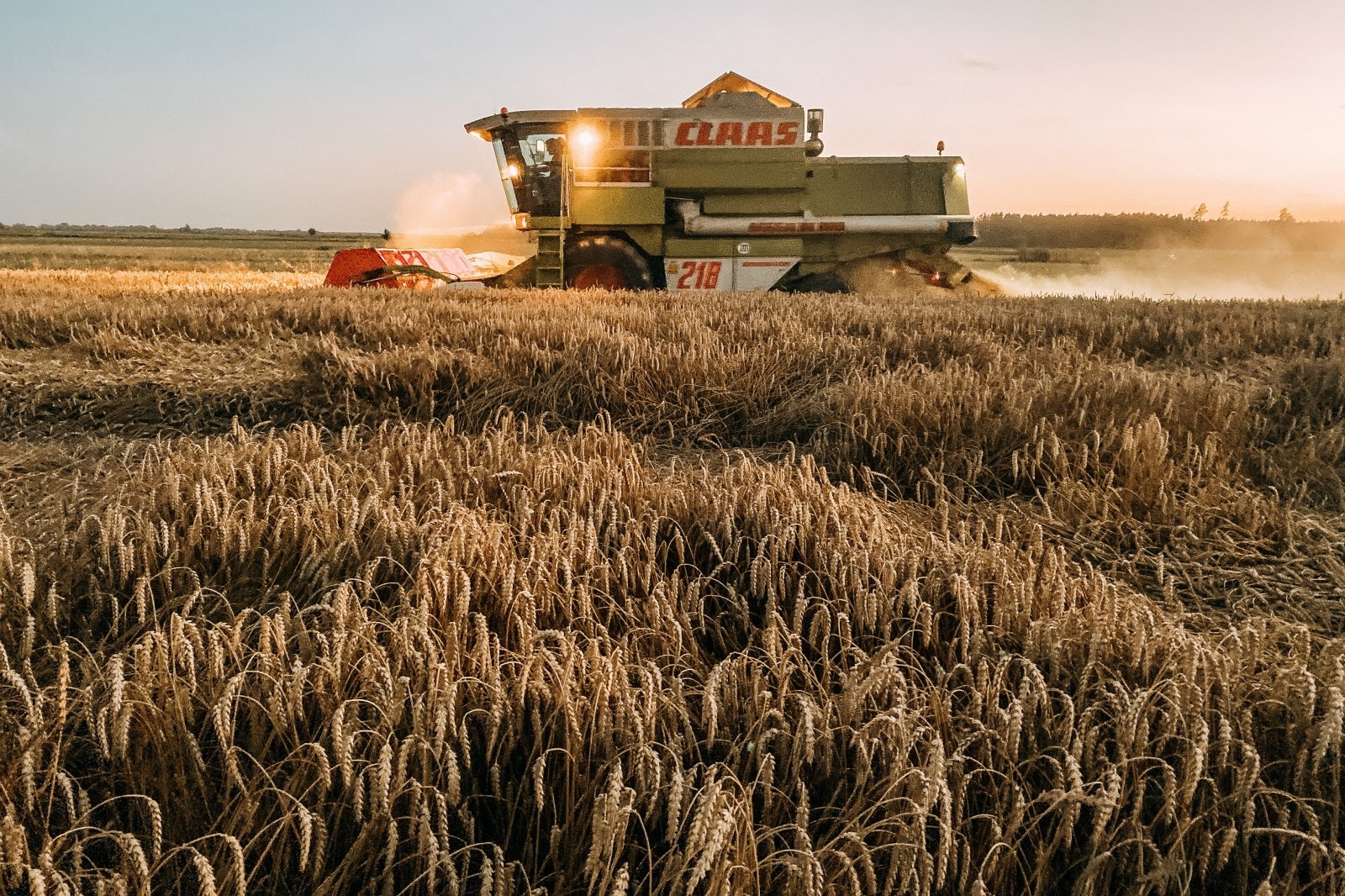
[ad_1]
According to data from the Center for Agricultural Information and Rural Businesses, in mid-January the purchase prices of most cereals rose and wheat was purchased from Lithuanian grain purchasing companies on average 196.6 euros per tonne, a 10.2 percent. more expensive than a year ago.
In addition, the purchase prices of wheat on international stock exchanges rose to 240 euros. Agricultural company Linas Agro notes that there has been no such price increase on the Paris Stock Exchange since 2013, when the purchase price of grain was one of the highest in history due to a difficult and unproductive year.
Prices rise due to Russian grain export duties
In Russia, from February 15 to March, wheat will be subject to an export tax of 25 euros per ton, and from March to the end of June it will reach 50 euros. Taxes will also apply to barley and corn.
Dalia Ruščiauskienė, director of the Association of Grain Processors and Traders, says that as Russia “falls” in grain exports, the market began to fear there would be a shortage of grain, especially considering that other major exporters – France and Germany – grew less this year.
“For these reasons, there is a fairly high demand for grain from buyers, which encourages price fluctuations in the international grain markets,” D. Ruščiauskienė told BNS.
According to Svajūnas Banelis, head of grain trade at Linas Agro, the tariffs are likely to rise further. Furthermore, the situation is further aggravated by Russia’s intention to apply an export quota until July 1 and allow the export of no more than 17.5 million. tons of wheat. Last year, farmers in this country had a record harvest: more than 80 million. tons of wheat.
According to Banel, the increase in prices in the cereal markets was also due to changes in consumption caused by the coronavirus pandemic: rapeseed purchase prices fell to their lowest point during their peak, as the use of biofuels in transportation decreased significantly. However, in the EuroNext market, the purchase price of colza jumped to 432 euros in February (last year it was 387 euros).
D. Ruščiauskienė also stated that prices were also affected by the updated reports of the United States Department of Agriculture on the stocks of soybeans and grains on world markets, the drought in Argentina.
Not all farmers can benefit from the price increase
Ignas Jankauskas, the head of the grain producers’ association administration, said that farmers felt the price increase, but said that only farms that could not sell grain could benefit from it; creditors did not pressure them to settle in fall. Had storage capacity. According to him, there are about 20 percent of these farms in Lithuania.
“Agriculture is so special that the price after the harvest can increase up to a thousand, but it is not possible to increase production. The production cycle is one year, it is more grain than cultivated, nobody will sell more, there is simply the opportunity to Take advantage of the price increase and the farms that were able to pay financially in the fall and still have a harvest can benefit from this price increase. “- I. Jankauskas told BNS.
He also warned that farmers should not be tempted by a sharp price increase and not risk selling more than 40 percent. harvest.
“The production season is just beginning, and a thick layer of snow threatens the harvest, the winter itself, which is still under the snow, and spring are still difficult to predict, I do not know how long the winter will last, we do not offer to risk great part of the harvest, ”he said.
However, I. Jankauskas warns that the current moment is quite favorable for the signing of advance contracts, since the contracts are concluded according to the current price, it can also lead to a higher price for the next season.
“Now is a good time to conclude early contracts, of course, it will all depend on the formula offered by the traders,” said I. Jankauskas.

Ignas Jankauskas
Food can be expensive
Grain processors argue that higher purchase prices could also lead to higher prices for final products for consumers.
“Rising purchase prices for cereals and Russia’s desire to protect its domestic market can also have a very unfavorable effect on consumers of final products.” Prices of fast food products, such as pasta or bread , they are already going up, which may be even more pronounced in the near future, “said S. Banelis, head of grain sales at Linas Agro.
D. Ruščiauskienė says that most producers have longer contracts, so they can amortize the higher prices of raw materials for some time, but if the prices of cereals remain higher for a long time, depending on the composition of the product, will affect the final price of the product. product.
According to Banel, it is still difficult to predict when the situation in the markets will stabilize, but price fluctuations could be slowed by the rains in Argentina and somewhat more optimistic forecasts for the future harvest in Russia and Europe.
It is not allowed to publish, quote or reproduce the information of the BNS news agency in the media and on websites without the written consent of the UAB “BNS”.
[ad_2]